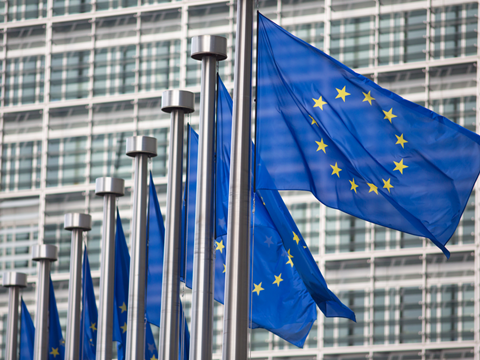
The European Commission is commencing an infringement procedure against all 27 EU Member States for falling short of legally binding collection and recycling targets, including the Packaging and Packaging Waste Directive’s expectation of recycling 55-80% of packaging waste by the end of 2008.
The latest available data reported by Member States suggests that all have failed to meet waste collection and recycling targets. Bulgaria, Czechia, Denmark, Spain, France, Croatia, Italy, Cyprus, Latvia, Lithuania, Hungary, Malta, Poland, Portugal, Romania, Slovakia, Finland, and Sweden apparently fell short of the Waste Framework Directive’s target to prepare 50% of municipal waste – including paper, metal, plastic, and glass – for reuse or recycling by 2020.
Meanwhile, the Packaging and Packaging Waste Directive expected Member States to recycle between 55% and 80% of all their packaging waste by 31st December 2008. This included 60% targets for glass, paper and cardboard; a 50% target for metals; 22.5% for plastics; and 15% for wood. Many of these targets were missed, the Commission says.
The Directive on Waste Electrical and Electronic Equipment (WEEE) also lays out a minimum annual collection rate of 65% of the average weight of electrical and electronic equipment placed on the market in each Member State within the three preceding years; or, alternatively, 85% of WEEE generated within the country in question. Apparently, most Member States failed to facilitate sufficient and separate WEEE collection, and so fell short of the EU target.
In order to improve their implementation efforts and fulfil obligations for 2025, 2030, and 2035, Member States are directed towards the 2023 Waste Early Warning Report and its country-specific recommendations.
Letters of formal notice have been sent to Belgium, Bulgaria, Czechia, Denmark, Germany, Estonia, Ireland, Greece, Spain, France, Croatia, Italy, Cyprus, Latvia, Lithuania, Luxembourg, Hungary, Malta, the Netherlands, Austria, Poland, Portugal, Romania, Slovenia, Slovakia, Finland, and Sweden, opening an infringement procedure. Each of the 27 Member States now have two months to respond and address the shortcomings in question.
If their responses are considered unsatisfactory, the Commission could issue a reasoned opinion calling upon each country to meet their legal obligations. Further failure to comply could potentially escalate the matter to the Court of Justice of the European Union (CURIA).
Earlier this year, global law firm Dentons carried out a legal assessment suggesting that the Packaging and Packaging Waste Regulation itself has a ‘high probability’ of discriminating against plastic packaging – finding ‘no objective reasons’ for these materials to be singled out – and could violate the EU principle of equal treatment. The European Parliament and Council were accused of procedural infringements for failing to consider ‘all relevant factors’ in their proposals.
On the other end of the scale, CURIA dismissed legal claims made by Symphony Environmental against a ban on oxo-degradable plastics. In its view, the European legislature ‘did not make a manifest error’ in preventing products containing a pro-oxidant additive from being placed on the European market, citing scientific research resulting in ‘low to non-existent’ biodegradation in open environments, landfill, and the ocean.
If you liked this story, you might also enjoy:
How are the top brands progressing on packaging sustainability?
Sustainable Innovation Report 2024: Current trends and future priorities
Reuse vs. single use – which is better for the environment?
The ultimate guide to global plastic sustainability regulation














No comments yet